"The Last Wave"
(1977)
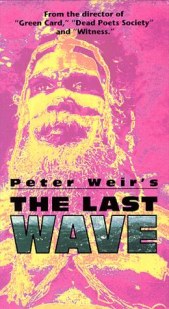
![]() When asked about
his films, director Peter Weir told interviewers he liked to think about
them as "a kind of quest." [Peter
Weir: Towards the Centre, Interview by Tom Ryan and Peter McFarlaine,
1981] In what sense is David Burton (Richard Chamberlain), the
lawyer in "The Last Wave," engaged in a quest? In what sense is your legal
education a quest?
When asked about
his films, director Peter Weir told interviewers he liked to think about
them as "a kind of quest." [Peter
Weir: Towards the Centre, Interview by Tom Ryan and Peter McFarlaine,
1981] In what sense is David Burton (Richard Chamberlain), the
lawyer in "The Last Wave," engaged in a quest? In what sense is your legal
education a quest?
![]() In the 1981 interview,
Weir told Ryan & McFarlaine he had tried to "unlearn" his training
in "analytical thinking." "It is a tool that I have found I didn't want
to use or live with." It might be interesting to note that Weir studied
both arts and law at the University of Sydney before he dropped out of
school and headed to London.
In the 1981 interview,
Weir told Ryan & McFarlaine he had tried to "unlearn" his training
in "analytical thinking." "It is a tool that I have found I didn't want
to use or live with." It might be interesting to note that Weir studied
both arts and law at the University of Sydney before he dropped out of
school and headed to London.
Why would anyone want to try to unlearn analytical thinking given that most of us go to such great lengths to learn how to do it well?
![]() On deciding what
films to make, Weir told his 1981 interviewers how "the connection
with a story is important for me; a feeling that it is somehow a part
of me — that I am part of the process of the film."
On deciding what
films to make, Weir told his 1981 interviewers how "the connection
with a story is important for me; a feeling that it is somehow a part
of me — that I am part of the process of the film."
Should we try to have a similar connection with the clients we represent as lawyers?
How would each of the film lawyers we have studied be evaluated on Weir's criteria, that is, on their connection to the story represented by their client, that the client's story becomes part of the lawyer, and that the resolution of the client's problem is the lawyer's problem as well as the client's?
![]() The ending of "The Last Wave" troubles some viewers. Weir said in the 1981 interview
that "[t]he ending is still a problem for me."
The ending of "The Last Wave" troubles some viewers. Weir said in the 1981 interview
that "[t]he ending is still a problem for me."
I have to be honest and say that I didn't find the solution to the problem of how to end the film. There is no ending and I was painted into a corner. I have seen it happen with other filmmakers. . . . You can't end it. You can try to be clever, and I tried a couple of other endings . . . but they were just too neat. The ending just plagued me, and it was an extremely unhappy period. Part way through the film we broke over Easter. I remember a terrible few days wrestling with this ending and pretending I had found a solution to it. But I certainly had no plan I failed to execute.
Asked if looking back at the film he had an idea how he might end it, Weir replies: "No. It's just the last chapter is missing. I just have to leave it; don't look back."
Do lawyers, like filmmakers, sometimes have trouble with endings, or are we, by virtue of law's finality spared the problem of troubled, inconclusive endings?
![]() Weir admitted
to Ryan & McFairlaine he had a "sometimes" interest in myth.
Weir admitted
to Ryan & McFairlaine he had a "sometimes" interest in myth.
I think they are an essential part of civilisation and it's given us particular problems as displaced Europeans [people living in Australia] who chose, for some extraordinary reasons, to leave our myths behind. I think our films in this period are, at times, an attempt to rediscover them or to reinvigorate them or even to create them, as the Americans have done.
On the aboriginal myth known as dreamtime: Wikipedia
How is the myth of law and of lawyers rediscovered, reinvigorated (created?) by way of lawyer films?
On mythology and law, see: James R. Elkins, An Archaeology of Myth
![]() Film Basics
Film Basics
"Who Are You?" [YouTube clip: 5 min. 47 secs.]
Richard Chamberline photo montage from "The Last Wave" [YouTube]
![]() Commentary
Commentary
"Are
You a Fish? Are You a Snake?"
Lecture & Notes on "The Last Wave"
![]() The Known & the Unknown: Jordan Peterson
The Known & the Unknown: Jordan Peterson
Chaos and Order
[2:38 mins.]
Reality and the Unknown
[3:44 mins.] [end presentation at 2:12 mins.]
"You Can be Completely and Utterly Dead But You Can Only Be So Much Happier"
[4:51 mins.] [end at 3:44 mins.] [begins with reference to 'terror management" and Ernest Becker; "terror at isolated being"; "we are vulnerable to all kinds of contingencies"; we are limited in the face of existential complexity; our early fears when we lived in a space surrounded with threats; "the known surrounded by the unknown"; the unknown is associated with predators; we can explore the unknown]
The Psychology Behind Getting Cheated On
[4:30 mins.] [example of an intrusion of the unknown: the cheating spouse; emergence of chaos; moving from ptA to ptB and "you just don't have a plan anymore"]
Two Types of Unknowns
[3:27 mins.] [end at 1:36 mins.]
The Taoist Symbol
[5:07 mins.] [longer version ("Personal Evolution, Avoiding the Extremes of Brain Fry & Boredom"):: 12:23 mins.]
Chaos is Hiding in Things You Ignore
[8:00 mins.] [moving from ptA to ptB and something unexpected happens; "you have this structure and now you have a hole it"; "you don't know what to do with the hole"; there are certain things you can confront that unglue you"] A second posting: Chaos Re-Emerging in Your Life [7:27 mins.] [when the constrained chaos that's underneath everything irrelevant suddenly re-emerges]
![]() The Hero's Journey
The Hero's Journey
Campbell's Hero Journey: An Overview
![]() Capturing the Sense of David Burton's Journey
Capturing the Sense of David Burton's Journey
We Need the Dreamers, Poets, and Doers
[17:12 mins.] [Tim 'Mac' Macartney] [TED Talk]
Notes
![]()
N1. Peter Weir wrote the film script for "The Last Wave."
N2. Peter Weir studied both art and law at Sydney
University before taking on minor TV work in the early 1970s.
[See: Biography
for Peter Weir]
N3. For those who may have an interest in director Peter
Weir, see: [A
Peter Weir
Interview, 1979, in connection with the U.S. opening of " The
Last Wave"] [Weir'd
Tales: An interview with Peter Weir] [Wikipedia]
N4. I recommend two of Weir's films: "The Plumber" (1978) [YouTube: trailer] and "The Year of Living Dangerously" (1982) [Wikipedia]. Some of you will have seen Weir's "Green Card" (1990); "Dead Poet's Society" (1989); and "The Truman Show" (1998). If you've not seen Weir's "Picnic at Hanging Rock" (1975) [Wikipedia], it an essential film for Weir fans.
N5. If you find Peter Weir's "The Last Wave" interesting, you'll also want to see two additional movies: Nicholas Roeg's "Walkabout" (1970)(described by Justine Kelly in sense of cinema as "a haunting film, set in a fading but spectacular world—ancient Australia) and "Where the Green Ants Dream" (1985)("Acclaimed director Werner Herzog . . . delivers a thought-provoking dram about a tribe of Aborignes and their fight to protect their homeland from an advancing modern civilization. At the center of the action is a conflicted geologist (Bruce Spence) tasked with spearheading a mining operation that just so happens to be located on sacred Aboriginal ground." ~Netflix)
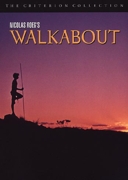 |
|
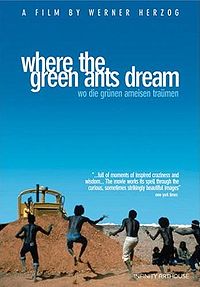 |
"Where the Green Ants Dream" (1985)
|
If you get hooked on Aboriginal films, you'll also want to see "Ten
Canoes" (2007), "Rabbit-Proof Fence" (2002), and "The
Tracker" (2002)
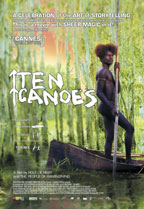 |
|
"Ten Canoes" (2006)
|
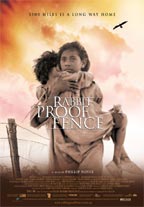 |
"Rabbit-Proof Fence" (2002) Music soundtrack, "Long Walk Home," by Peter Gabriel |
|
|
"The Tracker" (2002)[starring David Gulpilil; a Rolf de Heer film] Reviews: |
N6. David Gulpilil: Wikipedia
In "The Last Wave," David Gulpili plays the tribal Aboriginal man, Chris Lee.
N7. Bruce Chatwin: Viewers of "The Last Wave" intrigued by the film's Australian Aboriginal world, will find Bruce Chatwin's The Songlines (New York: Viking, 1987) of interest.
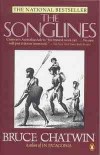 |
Wikipedia |
N8. Didgeridoo
Australian Aborigine Playing Digiridoo in Brisbane
Didgeridoo Played by a Modern Master
Gunbarrk Garra, didgeridoo lessons with Nigel 'Bolda' Hunter
N9. Photomontague Tributes
YouTube video: Australian Aboriginal
N10. Judge Murray Sinclair, a Manitoba Ojibway, speaks on 'How to Be a Lawyer': [YouTube video] [Murray Sinclair--Wikipedia] [In 1988, Murray Sinclair became Manitoba's first Aboriginal judge, and only the second Aboriginal judge in Canada.]
